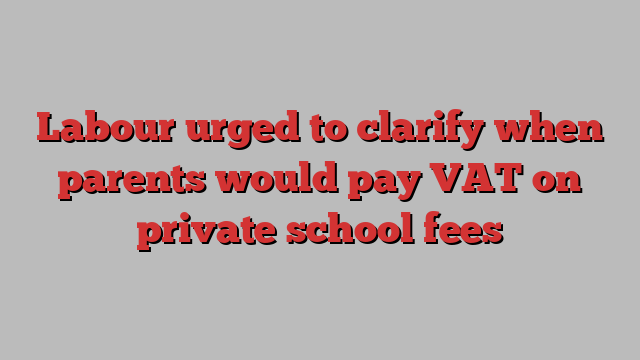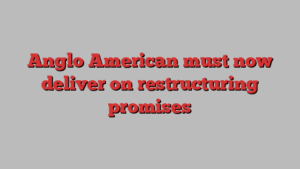
Stay informed with free updates
Simply sign up to the UK tax myFT Digest — delivered directly to your inbox.
Private schools have called on Labour to clarify whether parents will have to pay value added tax on fees from September if the party wins power at the general election, after officials refused to say when precisely the policy would come into force.
Sir Keir Starmer, Labour leader, has said the flagship policy would be implemented “as soon as it can be done” after the election on July 4 if his party wins power.
However, Rachel Reeves, the shadow chancellor, this week ruled out a Budget before September, when the school year starts — leaving schools uncertain if parents will face the higher charges from next term.
“Schools and families certainly need clarity on Labour’s proposals — they cannot plan based on headlines,” said Julie Robinson, chief executive of the Independent Schools Council, which represents more than 1,300 independent UK schools.
Nick Pietrek, headmaster of Stafford Grammar school in Staffordshire, which has about 1,000 students, said it was “hugely frustrating” that Labour had not yet set out a timeline for its proposals, as school leaders and parents were left unclear what the policy would mean for their own finances.
“Getting some clarity, any clarity, would be incredibly welcome,” he said.
Labour has pledged to end a long-standing VAT exemption enjoyed by independent schools, something that would raise costs by about 20 per cent.
Private schools have warned that the policy could cause an exodus of pupils from the sector, something that would create greater financial pressures on state schools.
Pietrek added that there was a growing feeling among school leaders that VAT would not be introduced until April 2025, as it would take at least six months for HM Revenue & Customs to register schools for the tax.
Dan Neidle, a tax expert at think-tank Tax Policy Associates, told the Financial Times that the VAT rise “almost certainly” could not be applied by September, regardless of when Labour’s first Budget would be.
He predicted that Labour would be likely to hold a consultation during the autumn on details of the policy.
“I expect they’ll make an announcement pretty soon after the election, saying they’ll apply VAT from perhaps April, with an anti-forestalling measure to stop pre-payment,” he said. “It would be more conventional to apply it from September 2025 but I think they’ll want to move quicker, for political and financial reasons.”
Labour believes the policy will raise £1.5bn, money the party intends to use to hire more than 6,000 new state school teachers.
Robinson from the ISC said there was a “real possibility” that the policy would not raise any net money for state education.
“Taxing education won’t achieve our shared goal of a great education for every child,” she said. “We are particularly keen that all candidates understand the impact VAT will have on Jewish and Muslim community schools and on small schools who are important community hubs and local employers.”
Figures from consultancy Baines Cutler — in a 2018 report commissioned by the ISC — predicted an outflow of 17-25 per cent of private school pupils under the policy. The Institute for Fiscal Studies has estimated a much smaller drop in attendance of between 3 and 7 per cent.
Reeves is unwilling to hold a Budget earlier than September because of a requirement to give 10 weeks’ notice to the Office for Budget Responsibility, the financial watchdog, to prepare its independent financial forecast for the Budget measures.
Labour said: “We are going to have to win the election and then set the timetable for a fiscal event”, adding the party’s “commitment to bringing in extra investment [to state schools] as soon as possible”.

